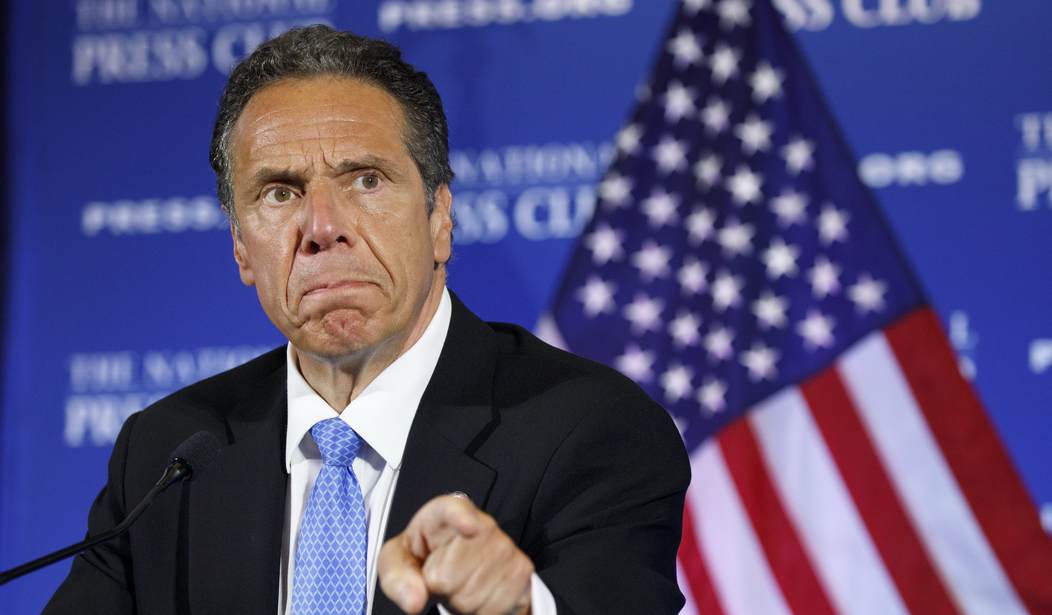The Associated Press has published an extensive “explainer” piece this week about a subject near and dear to our hearts. The global pandemic has served as an excuse for leaders around the world to assume ever greater amounts of authoritarian power in the name of keeping everyone safe and preventing unrest. Some of the examples they offer come from socialist nations that were already fairly totalitarian to begin with, while others might come as more of a surprise. But the one thing they all have in common is the fact that many of the actions these leaders have taken appear to have little or nothing to do with COVID and are more related to locking people down (or in some cases locking them up) to stop them from creating problems for the government.
Here’s some of what happened while the world was distracted by the coronavirus: Hungary banned the public depiction of homosexuality. China shut Hong Kong’s last pro-democracy newspaper. Brazil’s government extolled dictatorship. And Belarus hijacked a passenger plane to arrest a journalist.
COVID-19 has absorbed the world’s energies and isolated countries from one another, which may have accelerated the creep of authoritarianism and extremism across the globe, some researchers and activists believe.
“COVID is a dictator’s dream opportunity,” said Theary Seng, a Cambodian-American human rights lawyer who has been indicted on charges including treason in the ostensibly democratic southeast Asian nation, where Prime Minister Hun Sen has been in power for more than three decades.
Seeing China near the top of the list shouldn’t come as any surprise because they’ve been absolute authoritarians for as long as the Chinese Communist Party has existed. But I’m not sure why their move to shut down the Apple Daily was included here. They didn’t use the pandemic as a pretense for doing that. They simply accused the paper of undermining “national security” by writing about the pro-democracy movement. And Belarus hasn’t had a much better track record in terms of journalistic freedom dating back to well before the pandemic.
The article goes on to point out that Cambodia has taken the opportunity to use this moment as an excuse to lock up scores of people from the opposition party and put them on trial. They’re taking a page out of China’s playbook in Hong Kong and the rest of the world is largely too busy to notice at the moment. The report goes on to list more than a dozen other nations where repression of normal freedoms has been taking place.
When you look over that list, it might make you feel like the executive mandates and authoritarian control exerted by many governors and mayors here in the United States really doesn’t seem so bad by comparison. But there was still plenty of that sort of thing going on in America for the past 15 months. You have to read all the way down to the end of that AP article before you find the only mention of the United States, however, and it’s only one sentence long.
“In the United States, President Joe Biden has veered away from the populism of Donald Trump, but a Republican Party radicalized by the former president’s supporters has every chance of winning power again.”
The deceptive practice of equating “populism” with “authoritarianism” is a subject I’ll leave for another day. But the AP reporters completely brushed aside some of the antics that American politicians engaged in. Seeing governors and mayors ordering everyone to stay at home and quarantine while they go out and about maskless to wine bars and such certainly struck me as being rather dictatorial in nature.
This is a subject that I wrote about way back at the beginning of the pandemic. When legislatures began rushing to pass emergency power laws that ceded legislative control to the governors and mayors, it wasn’t hard to see potential trouble on the horizon. When you hand some people the authority to simply whip out their pen and order the entire population to stay at home or shut down businesses, that sort of power can quickly become addictive. And even back then it was easy to see that once a significant part of the population achieved immunity, whether through surviving the disease or receiving an eventual vaccine, the temptation would be there to treat citizens differently. That’s when I began worrying about the eventual emergence of immunity passports.
Thankfully that hasn’t been adopted at the federal level, but many states and cities have been implementing such programs, along with entire industries. All across the world, we’re seeing situations where those with immunity are having all of their former freedoms returned to them while those without such status face restrictions. And here in the United States, the federal government may not be imposing such policies directly, but they’re also not doing anything to discourage these practices. So would you consider that to be an example of authoritarian action? It certainly sounds like it meets the definition to me.








Join the conversation as a VIP Member